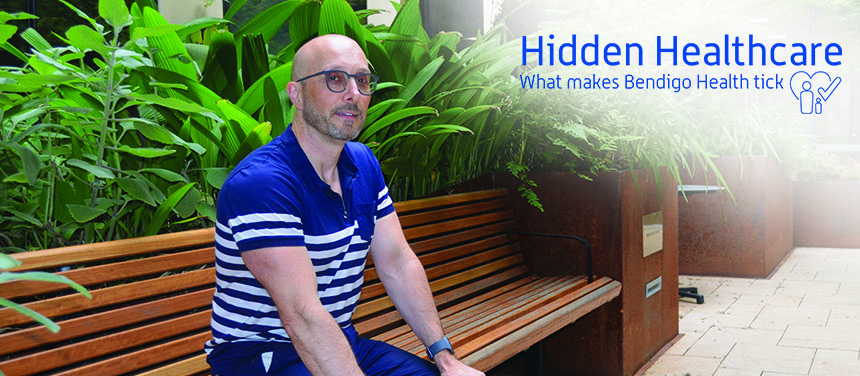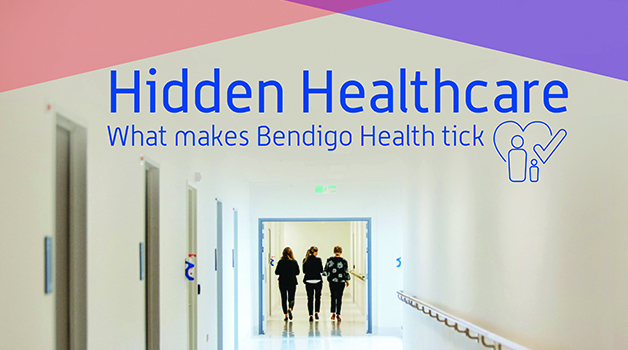 Director of oncology Rob Blum has combined his passion for music and medicine to great effect at Bendigo Health, with the launch of the Music and Arts project this week.
Director of oncology Rob Blum has combined his passion for music and medicine to great effect at Bendigo Health, with the launch of the Music and Arts project this week.
Rob Blum has always had a logical approach to music.
As a six-year-old, too small to play the guitar, he chose the accordion.
As a teenager, considering whether to pursue a career in medicine or music, he – with a little persuasion from his parents – viewed medicine as a more stable and sensible profession.
“Playing an instrument for a hobby and doing it as a career are completely different things... I have no regrets,” he said.
Nor should he. During 17 years at Bendigo Health, the director of oncology has helped develop the Cancer Centre to include five oncologists, a haematology clinic and enhanced the clinical trials capacity within the oncology unit.
“In terms of self sufficient for this area, we’re about 80 per cent, meaning only 20 per cent of people need to travel to Melbourne for treatment,” he said.
With clinical improvements on an upward trajectory, Rob sought to introduce some artistry in the workplace.
"I’ve always enjoyed creative stuff and I suppose working in a hospital setting, you can be creative in your thinking but it doesn’t have the artistic creativity in it," he said.
It began with fundraising for a baby grand piano in the Cancer Centre, which has proved popular with patients, visitors and staff in recent times.
“When you hear patients say the music made them feel like they weren’t in a hospital, that’s pleasing,” he said.
Bendigo Health this week launched a new Music and Arts project, which sets about formalising the process of volunteer musicians coming into the hospital to play the piano or other instruments in clinical areas.
It’s part of a broader push to focus on the holistic care of patients in the Cancer Centre, with a new Wellness Coordinator role created in January.
Rob has been a big driver of the Music and Arts project, which he believes could be “just the start” of Bendigo Health’s journey toward formal music therapy for patients.
“People that come here, their blood pressure goes up as soon as they sit in the chair, they have high levels of anxiety,” he said.
“We are not at a music therapy level yet, that’s something to aspire to, but what it (music) does do is change the interaction of the patient with the place – making it less daunting.
“The reality is when people are sat in waiting rooms which is where they would hear the music, it provides some entertainment and decreases levels of anxiety,” he said.
Rob reasons that the Music and Arts project could be a captive audience for academics to investigate the benefits of music in healthcare.
“We have all the infrastructure here for research and with the project there’s a whole untapped population for studies,” he said.
With music and medicine, Rob is driven by his competitive spirit, which shows no sign of diminishing.
“I want this to be the best,” he said.
“Being from Melbourne, there can be this perception that anything outside of Melbourne can be inferior and on many levels what’s provided here (clinically) is the complete opposite to that.
“I don’t believe anything has to be less than, we can be more than.
“When I leave here I want to believe that it’s one of the best places in Victoria to have your (cancer) treatment.”

For more stories in our Hidden Healthcare series, click below.
Hidden Healthcare